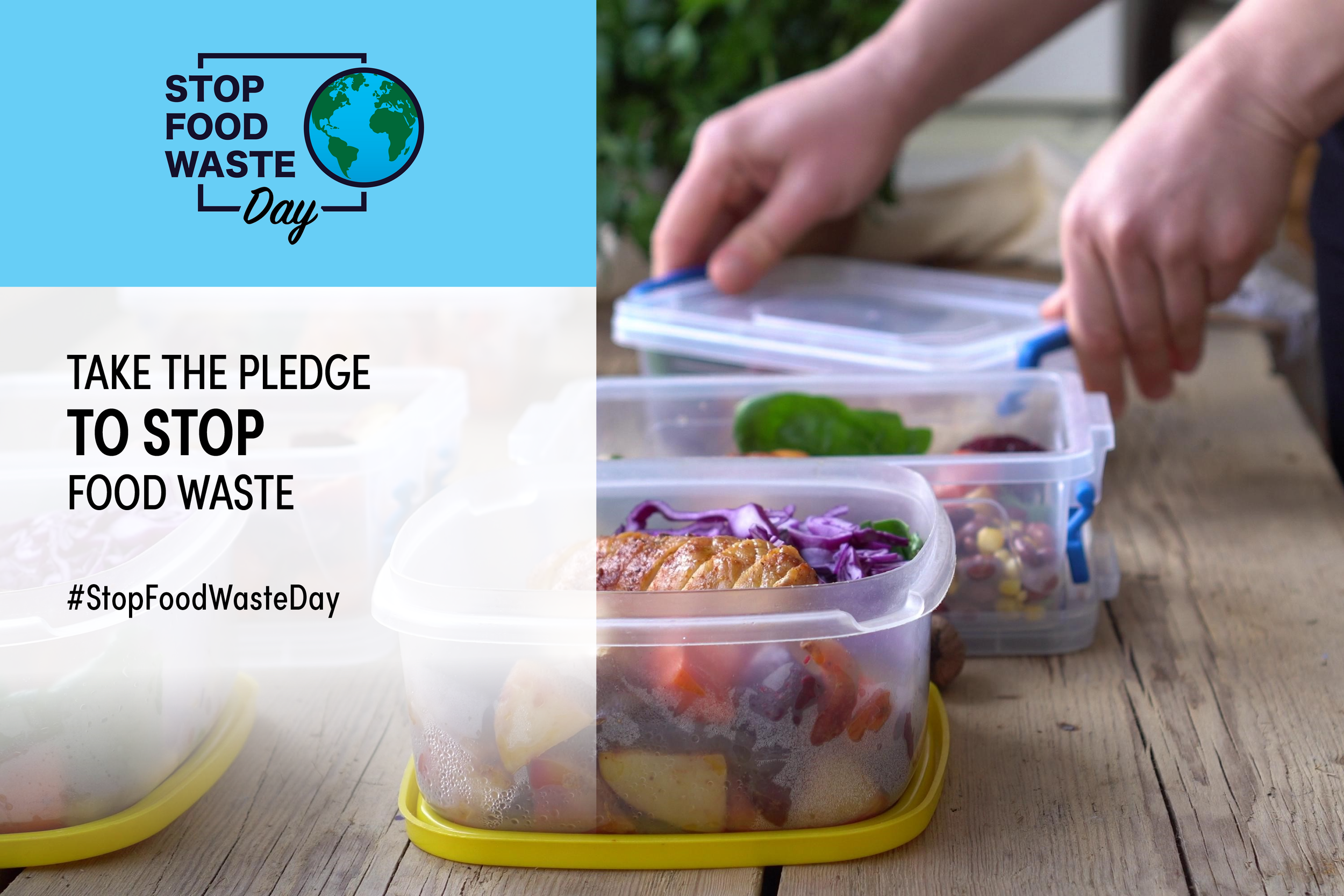Help Prevent Food Waste: Join the #StopFoodWaste Movement Today!
Are you aware that food waste has global impacts on environment, society, and economy. We must educate and change our food culture together.
After delving deeper into the topic and gaining insights on ways to reduce my own food wastage, I am eager to spread awareness and lend my support to the 'Stop Food Waste' initiative. You can join me in backing this campaign by visiting the provided link and making a pledge to contribute before or after the 24th of April, which marks #StopFoodWasteDay.
Once you have followed the pledge link above you will see this companies aims to help the world on stoping food wastes:
To reduce global food wastage, it is important to store food properly, utilize every edible part of the ingredient, and plan meals in advance.
Inspire all - companions, coworkers, local communities - to minimize food wastage and find new purposes for leftovers.
Revitalize food by repurposing ingredients that are often discarded, or by sharing excess food with your local community.
Here are some crucial tips to kickstart your journey and prevent unnecessary food wastage. These fundamental strategies will assist you in reducing food wastage effectively.
MAKE A LIST. Planning ahead by creating a grocery list can help a family of four save money and preventing food waste. Only purchase items that you know will be used to avoid unnecessary expenses.
LEARN THE ART OF FREEZING. Each person throws away approximately 300 pounds of food annually. Develop the practice of freezing excess food, bread, veggies, and fruits instead of discarding them in the trash.
HELP SAVE WATER. Wasting one pound of ground beef is like leaving the shower running for 370 minutes. The longer meat sits out at room temperature, the faster it will go bad. Remember to buy meat, poultry, and seafood last when grocery shopping and head straight home to store them properly.
REVIVE YOUR VEGGIES. A brief immersion in icy water for 5-10 minutes can rejuvenate drooping vegetables. Even if they cannot be revived, certain vegetables meant for raw consumption in your salad can still stand out in a cooked meal.
OVERCOOKED ISN'T OVER FOR GOOD. Leftover vegetables that have been cooked too much can easily be repurposed into delicious soups or sauces. Simply blend them together with broth, dairy, or a creamy base. Vegetables such as broccoli, carrots, cauliflower, and potatoes work wonderfully for this culinary transformation.
LESS AIR MEANS LESS FREEZER BURN. When food is left in the freezer and starts to oxidize, it can affect the taste. To prevent this, cut up any bread you won't eat all at once and store it in the freezer. Remember to remove any excess air from the bags or containers to avoid freezer burn, which may alter the taste but is not harmful.
DON'T BE BANANAS. Browning or speckled bananas are perfectly acceptable for consumption. Bruised areas of bananas can be easily removed or utilized. Overripe bananas and frozen bananas are ideal for making quick breads, muffins, or cakes.
WASTE LESS WITH KIDS. Ensure that you start with small portions and reduce the amount of food left uneaten. It is important for our children to be open to trying new foods, however, research indicates that many kids may need to taste a new food as many as 15 times before developing a liking for it. Offer more servings only when they show interest.
USE IT UP. around 90% of people discard food prematurely. Prepare dishes that can help utilize the ingredients that are close to spoiling in your pantry. Just because your salad leaves are drooping doesn't mean they need to be thrown away.
MAKE MEAL PLANNING SIMPLE. approximately 40% of the food supply in the United States is wasted each year. To prevent food waste, it is advised to first take stock of what needs to be used up before heading to the store. Consider creating a meal using those ingredients, then check your pantry for any additional items needed and make a note of them on your shopping list.
Importance is rooted in truths, and here are a few to contemplate upon...
In Summary of this subject and why to help stop food waste…
Recognizing the global impacts of food wastage on the environment, society, and economy is vital. Educating ourselves and collectively altering our food consumption habits is crucial in tackling this issue. Supporting the 'Stop Food Waste' campaign and spreading awareness can help address the problem. Effective food preservation, utilizing all edible parts, and strategic meal planning are essential in reducing global food wastage. Encourage minimizing waste and creatively using leftovers in your community. Suggestions to kickstart your journey in reducing food waste include creating a shopping list, storing excess food in the freezer, buying perishables last, transforming overcooked vegetables into soups, preventing freezer burn, making use of ripe bananas, getting children to try new foods, cooking with ingredients nearing expiration, and planning meals efficiently.
Let's work together to combat food wastage!
What Next?
Did you enjoy the content of this blog? I’d love to hear your thoughts, drop your comments below!
If you found this helpful, why not:
Subscribe to my blog for monthly tips, tricks, and styling inspiration to elevate your food photography.
Take Your Skills Further: Ready to level up? Explore my one-to-one personalized tutorials and transform your food photography.
Book a Session: Need professional shots for your brand? Let’s collaborate on your next food photography project!



